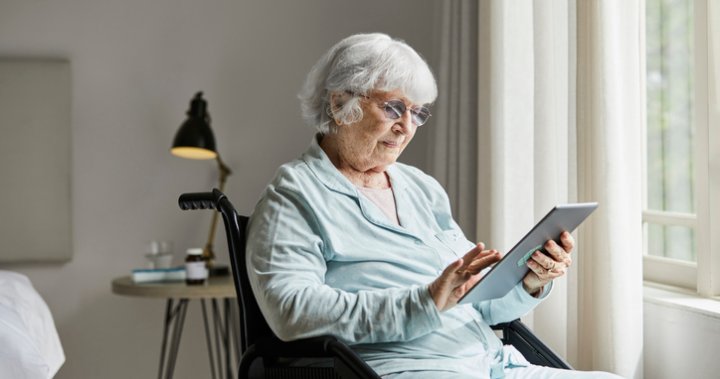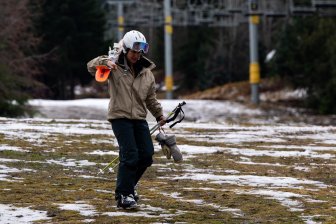Loneliness in Canada, particularly among older people, has been steadily escalating, a trend exacerbated by the COVID-19 pandemic. In response, a Toronto hospital is proactively addressing this growing concern through a clinical trial called ‘How R U’.
The program, put on by Mount Sinai Hospital in Toronto, aims to reduce loneliness in older hospital patients by facilitating social video calls between patients and volunteers over a three-month period.
“We’ve got a problem with connection in our society,” explained Toronto emergency room physician Dr. Jacques Lee, who is also heading the program. “Even walking down the street. Everybody’s looking at their phones, we’ve lost that sense of community.”
The aftermath of the COVID-19 pandemic has witnessed a surge in loneliness, prompting heightened concern among experts, such as Lee. He has even likened the adverse health effects of social isolation and loneliness to smoking 15 cigarettes a day.

Lee witnessed the impact of loneliness firsthand among patients he encountered in the hospital. For example, he said during the early stages of the pandemic in spring 2020, Lee was working in the emergency room and treated an elderly man. While the man previously had COVID-19, that’s not why he was at the hospital: the patient said he felt he was dying from loneliness.
“He said ‘Doc, I’m dying of loneliness, I can’t live like this’,” Lee explained. “I didn’t have a prescription for that, I didn’t know what to do for him,” he told Global News.
This encounter prompted Lee to take action, leading him to launch the How R U study (initially launched in Australia) aimed at supporting the treatment of loneliness through the assistance of hospital volunteers.
Lee notes that most Canadian hospitals have volunteer services, adding that the program recruited and trained 50 volunteers for this specific trial.
“So, volunteers calling older people and having a chat with them… they’re trying to encourage them to get out, make some goals for themselves, and try and be a little bit more connected.”
Get the latest Health IQ news.
Sent to your email, every week.
The hospital volunteers then check in on senior patients identified as being at risk of loneliness and social isolation. Andrew Taylor is one of these volunteers.
“It’s a contact for people who are socially isolated because they are recovering from a procedure and are at home and often live alone and then they sign up from their side,” he told Global News.
Once signed up, the patient is matched with a volunteer, like Taylor, to initiate a 12-week contact program, which is 30 to 60 minutes of conversation via video a week.
“It’s an escape for both of us,” he said. “I think I got as much out of it as the patients. They seem to be very glad to have a connection and over time come out of their shell.”
He added that in some cases many patients don’t have family or a loved one that’s close by, so connection gives them somebody to talk to.
Health impact of loneliness
Loneliness among seniors has been extensively studied, highlighting a connection with heightened mortality rates and impacts on both physical and mental health.
For example, a report by the National Institute of Ageing (NIA) released Dec. 5, found that around 41 per cent of Canadians aged 50 years and older are at risk of social isolation and up to 58 per cent in that age group have experienced loneliness.
While loneliness and social isolation can affect anyone, Lee noted these experiences often intensify with age, compounded by health issues, retirement, widowhood, and the loss of family members or friends. These major life events can make it more difficult to maintain or establish social ties.
The risk of premature mortality from social isolation and loneliness is comparable to other risk factors such as smoking, lack of physical activity, obesity, substance abuse, injury and violence and lack of access to health care, the NIA report stated.

Mood disorders, dementia, cardiovascular disease, malnutrition, falling and premature mortality are just a few of the adverse health outcomes that social isolation and loneliness have been linked to in older adults, the report said.
However, there are preventive measures, and Lee is optimistic that initiatives like the clinical trial underway at Mount Sinai will aid in mitigating loneliness for individuals.
“I don’t know what works yet. I do know that that the WHO says just do the things you enjoy, try and connect to people and let them know how you’re feeling,” he said. “It’s not meant to be a permanent befriending program, but it’s meant to help people make some changes in their own lives to reduce their loneliness,” he added.
The How R U program is currently running and accepting volunteers, he said, adding that he hopes to have the results of the clinical trial in the new year.
© 2024 Global News, a division of Corus Entertainment Inc.




